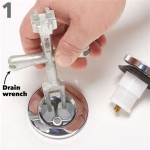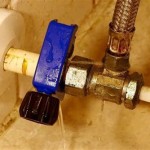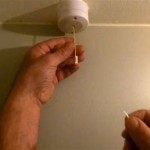Essential Aspects of Foul Smell in Bathroom Drain
Maintaining a clean and hygienic bathroom is essential for both comfort and health. However, unpleasant odors emanating from the bathroom drain can be a common issue. Understanding the underlying causes and implementing effective solutions is crucial to resolve this problem.
Foul smell in bathroom drain is majorly categorized as a noun. It signifies the malodorous scent originating from the bathroom drain. To delve into the essential aspects of this topic, we will explore the causes, potential health implications, prevention measures, and effective remedies for foul smell in bathroom drain.
Causes of Foul Smell in Bathroom Drain
The foul odor from the bathroom drain can originate from various sources. Hair, soap scum, and other organic matter accumulate in the drain over time, providing a breeding ground for bacteria and mold. These microorganisms release unpleasant gases, contributing to the stench. Additionally, faulty plumbing, such as a broken P-trap or clogged vent pipe, can trap water and organic waste, leading to odor development.
Potential Health Implications
While foul smell in bathroom drain is generally not a significant health hazard, it can contribute to respiratory issues for sensitive individuals. The bacteria and mold present in the drain can release allergens and irritants, potentially causing congestion, sneezing, and watery eyes. Prolonged exposure to these microorganisms can also aggravate asthma and other respiratory conditions.
Prevention Measures
Regular cleaning and maintenance can effectively prevent foul smell in bathroom drain. Regularly running hot water through the drain helps flush out hair and soap residue. Using drain strainers can prevent large debris from entering the drain and accumulating. Additionally, natural solutions like baking soda and vinegar can help deodorize and remove organic matter from the drain.
Effective Remedies
If the foul smell persists, stronger measures may be necessary. Chemical drain cleaners can dissolve organic matter and kill bacteria. However, using these cleaners sparingly is recommended, as they can be harsh on plumbing fixtures. Enzymatic drain cleaners, which use enzymes to break down organic waste, are a gentler and more environmentally friendly option.
In severe cases, professional plumbing services may be required to address underlying plumbing issues, such as a broken P-trap or clogged vent pipe. These repairs will ensure proper drainage and eliminate the source of the odor.
Conclusion
Foul smell in bathroom drain is a common issue that can be effectively managed by understanding the underlying causes and implementing appropriate solutions. Regular cleaning, prevention measures, and timely remedies are essential to maintain a fresh and odor-free bathroom environment. If the problem persists or worsens, professional assistance may be necessary to address more complex plumbing issues.

Why Does My Shower Drain Smell Bad Kay Plumbing Heating And Cooling
My Bathroom Smells Bad But Only When Its Hot Outside It Also Will Slightly Go Away I Run The Sink And Toilet Bathtub Any Thoughts On What Is
:max_bytes(150000):strip_icc()/__opt__aboutcom__coeus__resources__content_migration__mnn__images__2018__08__sink_drain-351af8e441034f319fe07f00c091d8b6.jpg?strip=all)
How To Clean A Smelly Drain Naturally

How To Clean A Stinky Sink Drain By Home Repair Tutor

How To Clean Stinky Drains Liquid Plumr

How To Get Rid Of Sewage Smell In Your Bathroom Bond Cleaning Adelaide

3 Plumbing Issues That Cause Bad Odor In Your Bathroom Ideas By Mr Right

How To Get Rid Of The Sewer Smell From A Bathroom Terry S Plumbing

Sewer Smell In Bathroom Solved Bob Vila

Why Does My Toilet Smell Like Sewage 5 Causes Solutions
Related Posts







